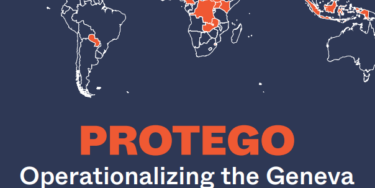Gender equality and human rights approaches to female genital mutilation: a review of international human rights norms and standards
(brief)
Download PDFBioMed Central has published a brief that situates female genital mutilation in the debate on human rights standards and norms.
Two hundred million girls and women in the world are estimated to have undergone female genital mutilation (FGM), and another 15 million girls are at risk of experiencing it by 2020 in high prevalence countries. Despite decades of concerted efforts to eradicate or abandon the practice, and the increased need for clear guidance on the treatment and care of women who have undergone FGM, present efforts have not yet been able to effectively curb the number of women and girls subjected to this practice, nor are they sufficient to respond to health needs of millions of women and girls living with FGM. International efforts to address FGM have thus far focused primarily on preventing the practice, with less attention to treating associated health complications, caring for survivors, and engaging health care providers as key stakeholders. Recognizing this imperative, WHO developed guidelines on management of health complications of FGM.
In this paper, based on foundational research for the development of WHO’s guidelines, we situate the practice of FGM as a rights violation in the context of international and national policy and efforts, and explore the role of health providers in upholding health-related human rights of women at girls who are survivors, or who are at risk. Findings are based on a literature review of relevant international human rights treaties and UN Treaty Monitoring Bodies.
Download PDF


